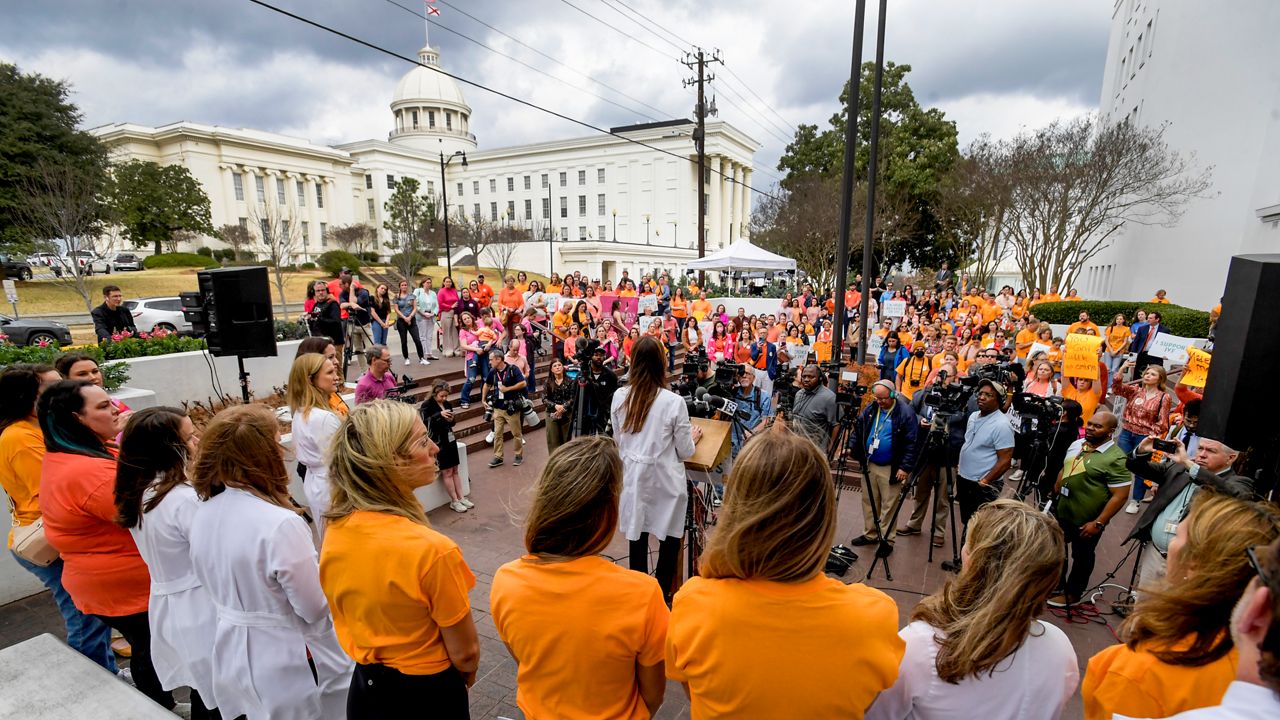Alabama lawmakers on Thursday passed a bill to protect in vitro fertilization services after fertility clinics shut down in the wake of a state court ruling that frozen embryos are children under the state wrongful death law.
Facing public pressure to get IVF services resumed in the state, lawmakers quickly advanced legislation that would extend lawsuit protections to clinics. Legislators are hoping to get the measures approved by early next week while they weigh whether additional action is needed.
“This would at least keep the clinics open and the families moving forward,” said bill sponsor Rep. Terri Collins, a Republican. The House of Representatives voted 94-6 for the bill.
The Alabama Supreme Court ruled in mid-February that three couples who had frozen embryos destroyed in an accident at a storage facility could pursue wrongful death lawsuits for their “extrauterine children.” The ruling, treating an embryo the same as a child or gestating fetus under the wrongful death statute, raised concerns about civil liabilities for clinics. Three major providers announced a pause on IVF services.
Republicans’ proposal focused on lawsuit protections instead of attempting to address the legal status of embryos. The legislation would shield providers from prosecution and civil lawsuits “for providing goods or services related to in vitro fertilization except for an act or omission that is both intentional and not arising from or related to IVF services.”
Some Republicans said they want to consider future restriction on what happens to unused embryos.
“It is alive. It is growing,” Republican Rep. Mark Gidley of Hokes Bluff said.
Republican Rep. Ernie Yarbrough of Trinity tried unsuccessfully to put an amendment on the bill that would prohibit clinics from intentionally discarding embryos that are unused or after genetic testing.
A Democratic lawmaker said the state, which has a stringent abortion ban with no exceptions for rape, has spent too much time interfering with the decisions of women.
“I am so tired of folks telling me as a female in Alabama what I’m going to do with my own body. It’s time that we stop this,” Democratic Rep. Barbara Drummond of Mobile said. She said a woman texted her this morning asking if the state would take “custody” and responsibility of her frozen embryos if they are now considered children
In their ruling, Alabama justices cited anti-abortion language added to the Alabama Constitution in 2018, saying Alabama recognizes and protects the “rights of unborn children.” The constitutional amendment was approved by 59% of Alabama voters.
Rep. Chris England, a Democrat from Tuscaloosa, said lawmakers may be able to provide a temporary solution through legislation but a long-term solution must address the 2018 constitutional amendment, which he said essentially established “personhood” for embryos.
“There are far-reaching ramifications of personhood,” England said.
More than 200 IVF patients filled the Statehouse on Wednesday pressuring lawmakers to get IVF services restarted in the state. They showed lawmakers babies created through IVF treatment or described how the ruling halted their path to parenthood.
Republicans hold a lopsided majority in the Alabama Legislature and did not take up a Democratic-sponsored bill that stated a human embryo outside of a uterus “is not considered an unborn child or human being for any purpose under state law.”



